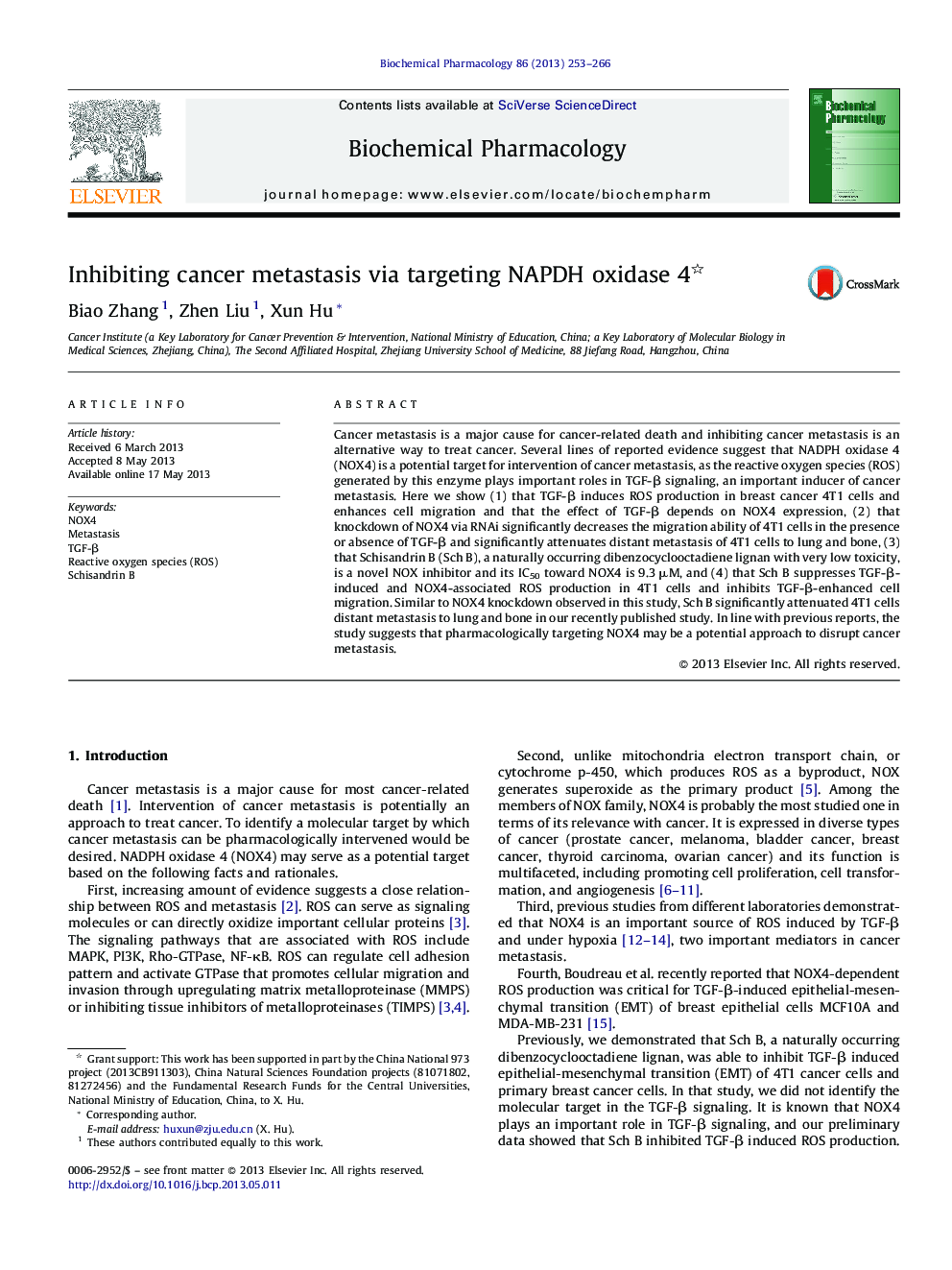| Article ID | Journal | Published Year | Pages | File Type |
|---|---|---|---|---|
| 2512605 | Biochemical Pharmacology | 2013 | 14 Pages |
Cancer metastasis is a major cause for cancer-related death and inhibiting cancer metastasis is an alternative way to treat cancer. Several lines of reported evidence suggest that NADPH oxidase 4 (NOX4) is a potential target for intervention of cancer metastasis, as the reactive oxygen species (ROS) generated by this enzyme plays important roles in TGF-β signaling, an important inducer of cancer metastasis. Here we show (1) that TGF-β induces ROS production in breast cancer 4T1 cells and enhances cell migration and that the effect of TGF-β depends on NOX4 expression, (2) that knockdown of NOX4 via RNAi significantly decreases the migration ability of 4T1 cells in the presence or absence of TGF-β and significantly attenuates distant metastasis of 4T1 cells to lung and bone, (3) that Schisandrin B (Sch B), a naturally occurring dibenzocyclooctadiene lignan with very low toxicity, is a novel NOX inhibitor and its IC50 toward NOX4 is 9.3 μM, and (4) that Sch B suppresses TGF-β-induced and NOX4-associated ROS production in 4T1 cells and inhibits TGF-β-enhanced cell migration. Similar to NOX4 knockdown observed in this study, Sch B significantly attenuated 4T1 cells distant metastasis to lung and bone in our recently published study. In line with previous reports, the study suggests that pharmacologically targeting NOX4 may be a potential approach to disrupt cancer metastasis.
Graphical abstractFigure optionsDownload full-size imageDownload as PowerPoint slide
